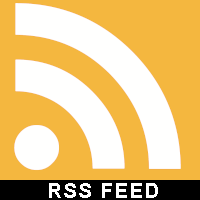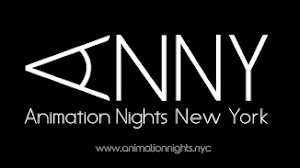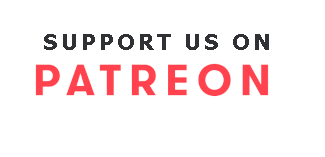INSIDE JOB: AN INTERVIEW WITH SERIES CREATOR SHION TAKEUCHI
The hidden Truth which conspiracy nuts have proclaimed for centuries was revealed last Friday, in Netflix’s adult animation Inside Job. Its ten episodes (so far) are a thorough expose on the Shadow Government and the Deep State. You’ll never guess – the secret rulers of the world are as dysfunctional and fallible as the fake ones. Chris Perkins reviews the series at this link.
Thanks to Netflix, I could interview the show’s creator, Shion Takeuchi. Her past CV includes graduating from CalArts, interning on Adventure Time, and writing for Pixar, Regular Show, Lost in Oz, Disenchantment and Gravity Falls. (Gravity Falls’ creator Alex Hirsch is an Executive Producer on Inside Job.)
There are many secret pathways into Inside Job. I began by asking about one of the most interesting and unusual characters to ever head up an animated series, the harassed heroine Reagan Ridley.
AFA:The whole point of Reagan is that at the outset, she has no charisma in any conventional way. Did you find it a challenge to have her as the lead and still engage the viewers?
Shion Takeuchi - I’d say sometimes it can be a challenge for any lead, because usually the audience is invited to look through the lead’s eyes, and that often means the lead has to play the voice of reason or the straight man… but then typically you get the crazier characters who often steal the scene. Which is why we wanted to make Reagan flawed, and I was actually really surprised to see how warm a reception she has been getting. I guess there’s something about a character who’s fed up with work and has social anxiety which strikes a chord with many (laughs). As soon as we found her voice, I think she started to take on a life of her own.
Can you talk about why you wanted Lizzy Caplan to voice Reagan? (Caplan has taken supporting animated roles in the past, including Debbie in American Dad, though she’s better known for her live-action work, including her lead role in the TV series Masters of Sex.)
ST - I’ve been following Lizzy’s career for a long time, and I’ve always felt this really strong connection to the characters that she plays. She always plays these really whip-smart, driven and interestingly flawed people, and there’s just something so appealing about her. I’ve always related to her very much, and that’s why I wanted her to play Reagan.
Watching the first season, I felt that it was zeroing in on the
father-daughter relationship between Rand (voiced by
Christian Slater) and Reagan. It’s not so obviously important in
the earlier episodes, but it’s crucial by the end. Was that a deliberate
structural decision, to bring their relationship to the forefront as the
series goes on?
ST - The ending to this season was kind of what we were working
for the whole time, but the work is how you get there. If it’s a series about
six buddies who work at a restaurant, you don’t need to explain very much
about what that is. The challenge of making a show that has such a high
concept and surreal world behind it is that you have to introduce the world
and the characters well, just so people can understand what they’re
watching.
I think what we were trying to do is show Reagan as a person, and show
the internal struggles that she has as a person, and then reveal where they
come from and what her inner conflict is and what she needs to overcome in
order to self-actualise.
It struck me that you could almost take the Rand-Reagan story as a reply
to Rick and Morty. Rand has some similarities to Rick, but Reagan
responds very differently from Morty; she’s far more critical and
sceptical of Rand.
ST - I’d say that Rick and Morty is a show that obviously tapped
into something in the public consciousness. I didn’t make the show as a direct
response to Rick and Morty, but I do think that we all have maybe an older
relative, or something like that, that has a similar attitude to Rand or Rick.
Inside Job is really about the younger generation trying to deal with the
consequences of the older generation, and wanting to get away from the sense
of nihilism of the world that seems to be pervasive everywhere right now.
(laughs) I think that Rand is actually more drawn from my personal life and
the people that I know, but I guess it’s a common archetype.
On another subject, I was struck by the design of the mushroom character Magic Myc. It’s a rather beautiful design, though it’s undercut by some extremely gross humour about Magic Myc’s body. How did you come up with that?
ST - Initially Magic Myc was just drawn as a series of explorations on background characters and cryptids that might exist in this world. And then we were talking about, ‘We really need an office asshole,’ the button-pushing jerk that gets under everyone’s skin. And then we were looking through our character designs and, ‘It would be funny if it was a psychic mushroom’, because then he could really zero in on exactly what your insecurities are.
And then the conversation became, “Who would be really good in that role?” and immediately Brett Gelman! That’s how Magic Myc came together, it was kind of a glorious accident. [Comedian Brett Gelman is famed for his roles in American TV comedies such as Married, though other viewers may know him as Murray in Stranger Things and Martin in Britain’s Fleabag.
Can you talk about the writing process between yourself and the staff writers?
ST - I was in development for a year before we hired many people
on the series. I had some people consulting and I was working with my
Executive Producer, Alex Hirsch [creator of Gravity Falls]. During that time,
we came up with a loose structure for the season, the kind of episodes that we
wanted to explore, and the kind of character relationships we wanted to
develop, and then once we assembled the room (of writers), that’s when your
best assumptions and the broad strokes get tested and you can fill in all the
details.
We would get together and talk about the specifics of the conspiracies we
wanted to explore, and we had to invent new backstories, new lore, new reasons
for why familiar conspiracies exist, or we had to come up with new original
conspiracies that were maybe inspired by certain sci-fi concepts, but that
needed fleshing out.
We would take those and see if they matched
up with any of the character arcs that we wanted to get on the page. It was
like a tinkering process, to see what fits with what, and we had to throw out
a lot of stuff… In the end, hopefully the idea is to get a conspiracy that’s a
lampshade on a character’s internal problem of that week. We always start from
telling a story of a character having a personal conflict that’s relatable and
funny, and ends up with a surprising arc.
Which episodes were fixed fairly early on?
The pilot episode, of course, and then we had broad stroke ideas for “Mole Hunt,” the inner office conspiracy, and “Inside Reagan”, where characters discover memories from Reagan’s childhood. There were a few other ideas that were semi fleshed-out beforehand, such as the moon colony one (“Buzzkill”) and the reptoid one (“Blue Bloods”), but I have to stress they were very nascent in their first form. And so the writers' room really got together and did a fantastic job.
You brought up the moon colony episode, so I have to ask: Have you been sued by Buzz Aldrin yet?
ST - (Laughs) I have not heard from Buzz Aldrin’s people but I do hope that if they do contact us, they take kindly to us.
Did you ever consider voice cameos from the likes of Alex
Jones, David Icke or Marjorie Taylor Green, for obvious reasons?
ST - Never (laughs). I never thought of reaching out to them, I’m
not sure that I would enjoy a conversation with them.
You are credited with some additional voices in the series
yourself.
ST - I’ve done a few very small parts, like the elementary school
child crying in the cold open in the pilot, and one of the high-school
students at the prom in “Inside Reagan” – not any recurring characters, it’s
just “Uh oh, we need to fill out some voices, let me get in the booth!”
I noticed that the swear rate for the series is high, even by the standards of adult animation. There are a great many F-bombs…
ST - (Chuckles) Well, sadly, I guess, we wanted to write it how we actually talk. I guess we have filthy mouths! The intention isn’t necessarily to have shock value in having that many swear words. It was just, I guess, to give a sense of naturalism to how people that I know talk.
You started conceiving the series several years ago. Today, conspiracy theories loom large in the news. Would you agree the series plays to viewers differently now than it would have a few years ago?
ST - I have to agree, just because conspiracy theories have become such a prominent thing in the news, part of the discourse. It was definitely not something that I ever anticipated when I conceived of the show. But I hope that the basic point of view, which has never changed since its inception, is that even if there was a cabal of people trying to control things, human nature would lead them to be not very successful at it, and that hopefully will make people question the veracity of these conspiracy claims, with a little more critical eye. That part has always been there; I just didn’t know it would become so relevant.
Would Inside Job ever tackle, for example, elements of the QAnon
movement?
ST - I don’t think we’ll end up exploring that, because I really don’t want to give those people any more oxygen. The spirit of the show is very silly and sweet and fun, so you have to be careful, when you have these sweet characters exploring these worlds and concepts… You want to protect them a bit. There are certain things that are just too unpalatable to touch. That’s how I feel about the more recent things that have been going on.
The series has fun with figures such as Buzz Aldrin and John F. Kennedy, but did you consider using Trump, the conspiracy President?
ST - No, that was something else that we really wanted to stay away from. You know, there was a wave of shows that tried to tackle Donald Trump in satire, and it had mixed results just because the ridiculousness of reality seemed to constantly trump any comedy. The President in our show is not based on Trump. The President is our show is supposed to be this amalgamation of every President, the type of figurehead, the perfect blank older white male face that people feel most comfortable voting for. It’s not really a satire of Donald Trump at all, but just the type of leader that people seem to gravitate to, whether or not they actually have merit.
Finally, are you in production or pre-production on further episodes of Inside Job at the moment?
ST - Well, you may notice that it’s “Part 1” of
Inside Job on Netflix, so the full order was for more episodes. We are in post [production] on a few more, but as for future seasons, that’s all still up in the air.
Inside Job Part One
is streaming on Netflix now. Interview conducted by Andrew Osmond.





























